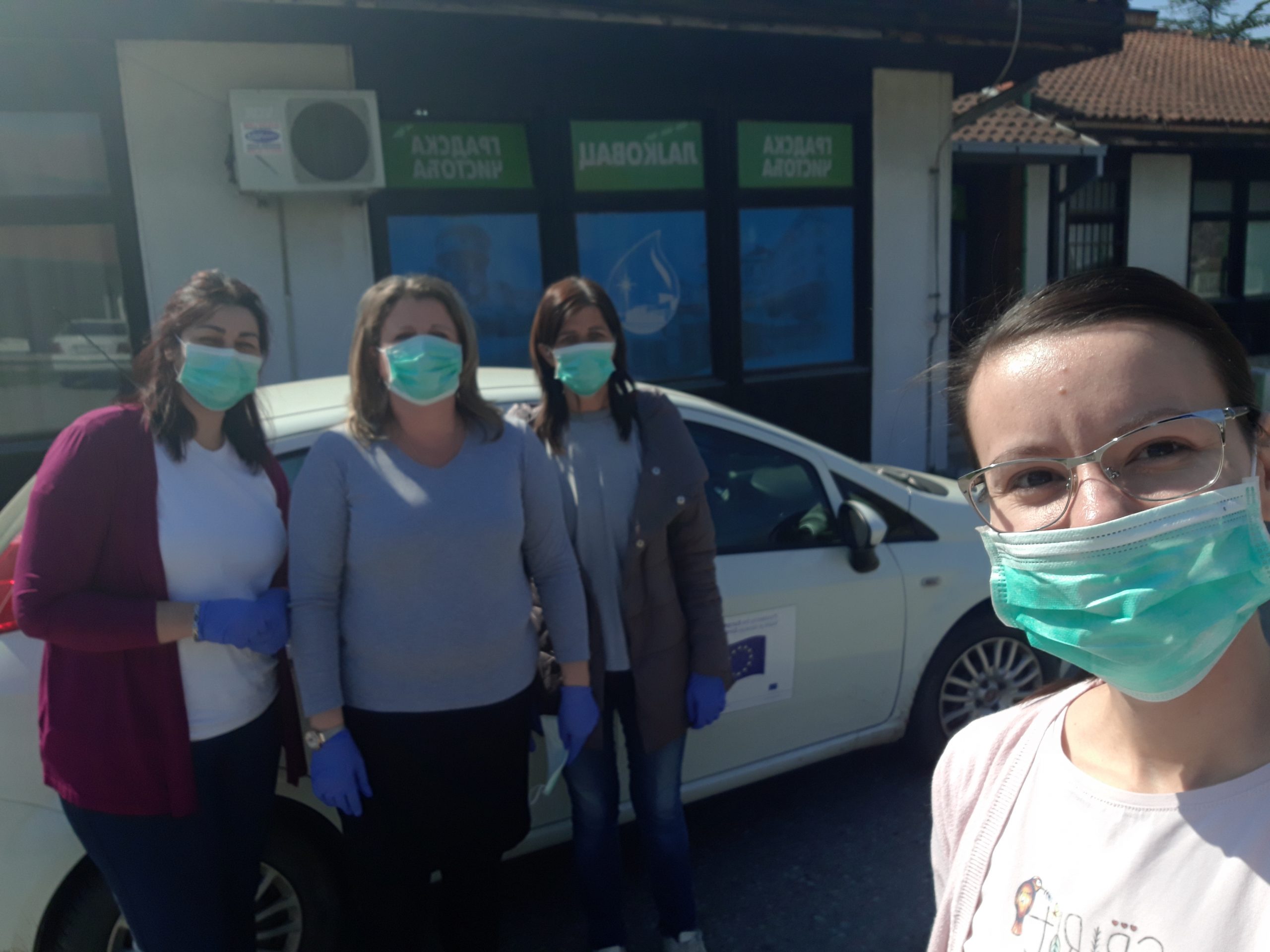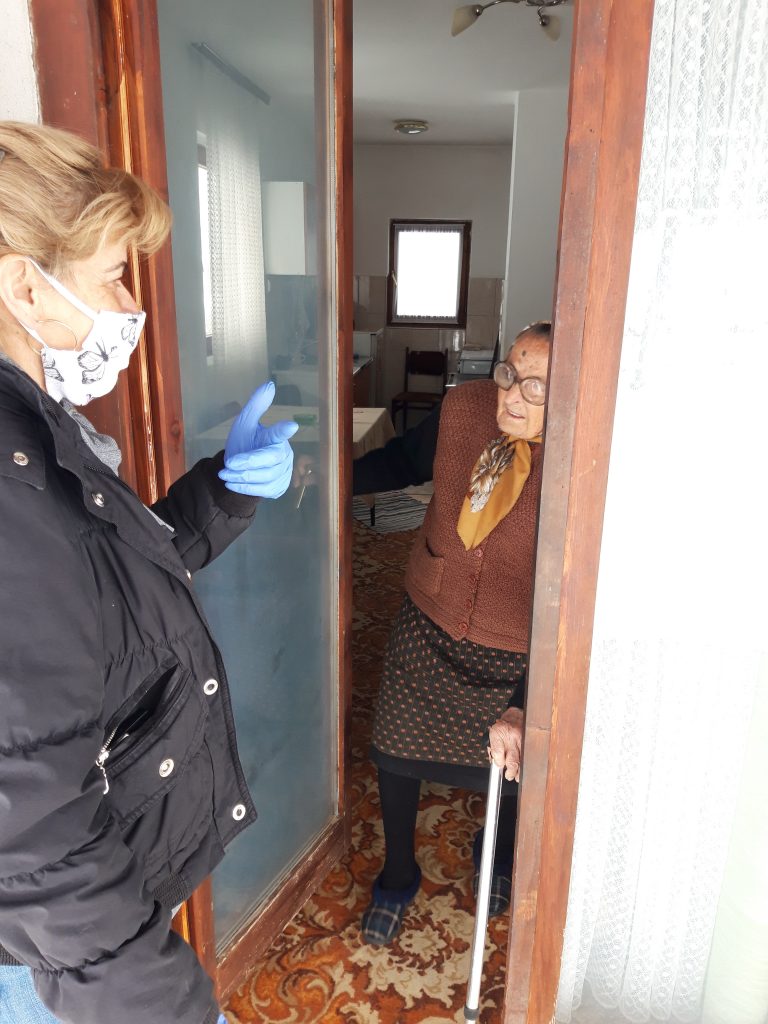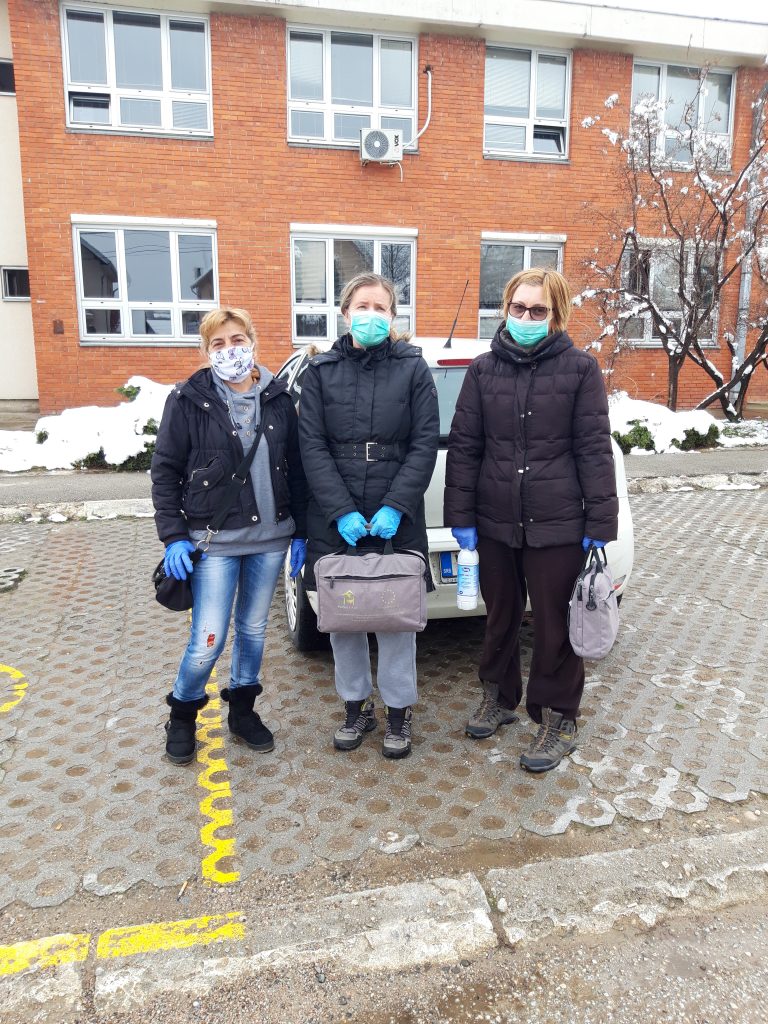“They are the only ones I can rely on. I can count on them to bring me food and medicine, things I need every day. I’m grateful for their kindness and poatience; I trust them and love them. This past year felt like I had two daughters,” says the old lady (85) from Moravci village whose life changed when geronto-housewives started working in Ljig, Mionica and Lajkovac.
The elderly and adults, whose either physical or mental disability prevents them from living independent lives, started receiving this kind of support in the summer of 2015. After a 20-month trial period, around 100 elderly persons and people with disabilities became the beneficiaries of said assistance.
Through the EUR4.3 million-worth programme “EU support for inclusive society,” 28 similar projects have been implemented. “More solidarity for the elderly: The Kolubara district cluster for the Help at Home service” was one of them.
Over the course of the project, the Joint Centre for social work “Solidarity” for the municipalities of Ljig, Lajkovac and Mionica improved the living conditions of 137 elderly residents of the municipalities of Ljig and Lajkovac. The project also included training and licensing of 35 people for the provision of daily community service “Help at Home;” equipment for caregivers; and purchase of three vehicles for fieldwork. The value of the project implemented by Caritas Valjevo, Joint Centre for social work “Solidarity” and the municipalities of Lajkovac, Mionica and Ljig was put at EUR127,000. Upon the completion of the project, the three municipalities have secured funds to continue providing assistance to the elderly.
The majority of beneficiaries are either vulnerable people or people who live alone in substandard living conditions and remote places. Their stories are usually similar – they live alone and can’t fend for themselves.
“I live in Poljanice, in a remote, hilly place, in a house with no running water, bathroom or kitchen. I’ve lived alone ever since my husband died eight years ago. Going out to buy groceries is the hardest part; I can’t walk due to my sickness, and the nearest supermarket is 3-4 kilometres away. I also have trouble keeping my house and clothes clean because I have to bring water by myself using buckets. It’s a terrible feeling to be hungry and unable to go out and buy food.
Thanks to my caregivers, my health condition has changed for the better. I am now taking medicine to keep high blood pressure and sugar under control; thanks to them I went to the doctor again after many years. I am in a better mood since they started visiting me; on Tuesdays, I have someone to talk to. Also, I know I won’t be hungry,” an old lady says.
“I used to be very lonely. I rarely go out because some people who know about my condition and the medicine I take look at me differently. I can feel it and it bothers me. Before my caregivers started paying me visits, I had a very hard time. At first, I was suspicious of them. But now, I couldn’t imagine living without them. Besides my neighbour Brana, my caregiver is the only one I truly trust and can talk to about anything. When she leaves my side, I start crying and I am once again left alone,” a 50-year-old beneficiary says.






